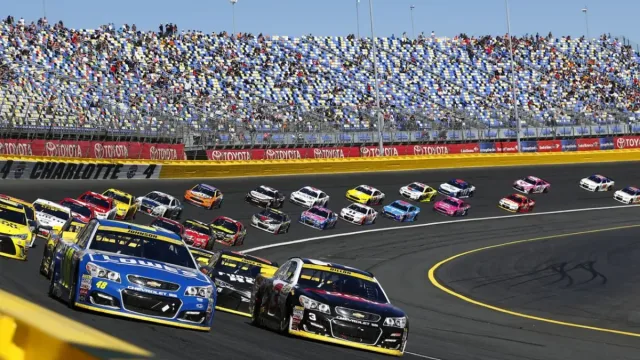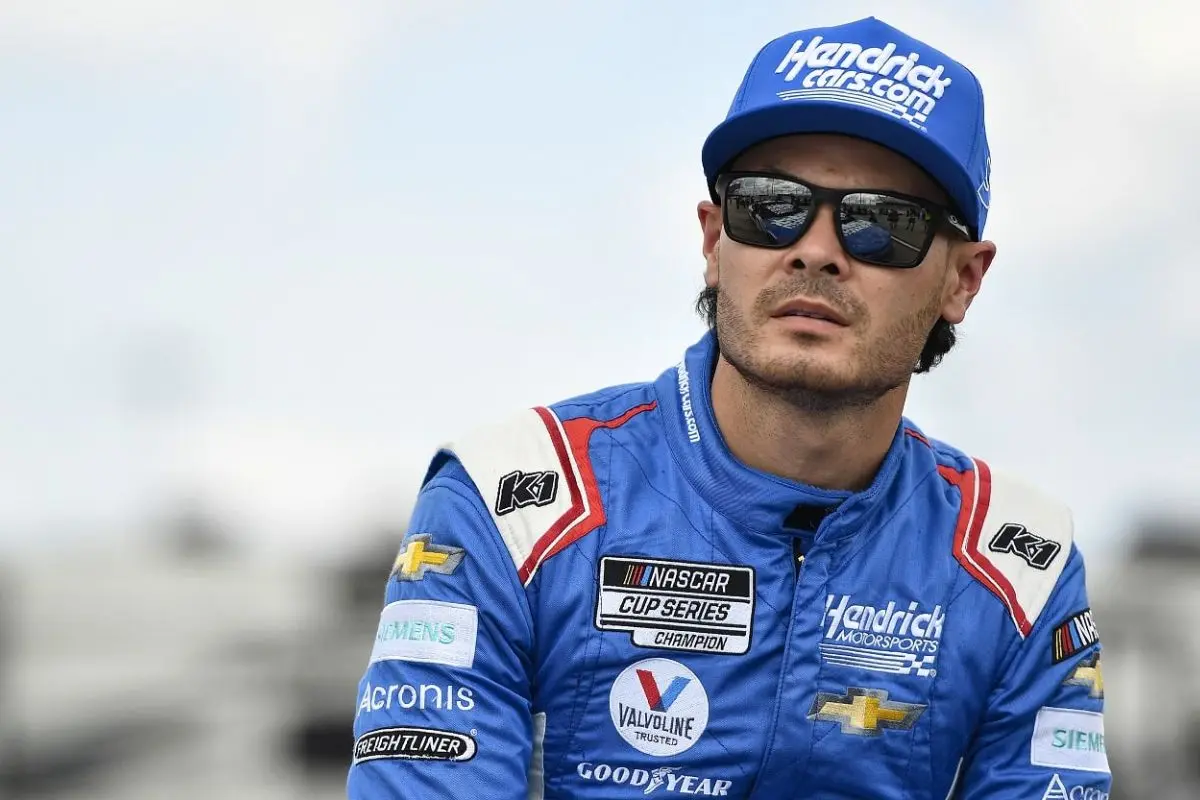The unseen influence of non-americans in NASCAR is a vital yet often overlooked factor in its success. Drivers like Kyle Larson, who combines Japanese American heritage with remarkable talent, and Daniel Suarez, the initial Mexican-born champion, exemplify this trend. Their achievements not only showcase diverse backgrounds but also attract new audiences, enriching NASCAR’s cultural fabric. Additionally, diverse teams cultivate cutting-edge strategies that improve competitive dynamics.
Key Highlights
- Non-American drivers like Daniel Suarez and Kyle Larson have reshaped NASCAR, bringing unique cultural perspectives that enhance the sport’s appeal and competitiveness.
- The success of diverse drivers has expanded NASCAR’s fan base, attracting new audiences and fostering a sense of belonging among underrepresented communities.
- Cultural backgrounds of drivers contribute to innovative strategies and team dynamics, leading to improved performance on the racetrack.
- NASCAR’s efforts to promote inclusivity have created opportunities for collaboration with international racing entities, increasing the sport’s global relevance.
- Celebrating the achievements of non-American drivers highlights their significant impact on NASCAR, inspiring future generations and challenging traditional narratives in motorsport.
NASCAR’s Misunderstood Diversity
Many might assume that NASCAR is exclusively a domain for American drivers hailing from affluent racing families, yet this perspective overlooks the nuanced reality of the sport’s diversity. The common stereotype suggests that only drivers with deep financial resources and familial connections ascend to the upper echelons of stock car racing. However, this notion fails to account for the multitude of talents that have emerged from diverse backgrounds, particularly those with non-American heritage.
The evolution of NASCAR has seen a gradual but notable inclusion of drivers from assorted cultural and ethnic backgrounds. This diversification enriches the sport, bringing new perspectives and competitive dynamics that challenge traditional norms. For instance, several non-American drivers have navigated the intricate pathways of racing, demonstrating that skill and determination can triumph over socio-economic barriers. Their paths often reflect a blend of dedication, resilience, and a unique approach to racing, which can lead to groundbreaking successes on the track.
Moreover, the increasing visibility of these drivers amplifies NASCAR’s appeal to a broader audience, nurturing a sense of inclusivity and community within a sport that is often perceived as insular. As NASCAR continues to evolve, recognizing and celebrating its diverse talent pool will be essential for its growth and relevance.
Kyle Larson’s Ethnicity: The American-Japanese NASCAR Star
Kyle Larson stands out as a prominent figure in NASCAR, not only for his impressive racing credentials but also for his Japanese American heritage, which adds a distinctive layer to his identity within the sport. Born to a working-class family in Elk Grove, California, Larson’s expedition in NASCAR has been shaped by both his skill and his roots. His mother, Janet, whose parents were interned in a Japanese camp during World War II, instilled in him a sense of resilience that resonates in his racing career.
While Larson may not be fluent in Japanese, his ethnicity plays a vital role in broadening the spectrum of representation within NASCAR. His triumphs—a Cup Series title and multiple race wins—serve as a guiding light for aspiring drivers from diverse backgrounds. Larson has observed a shift in fan demographics, noting an increase in Asian attendees at racetracks, a proof of his influence in diversifying the sport.
“I do feel like I’m making some sort of an impact. I’ve noticed more Asians at the racetracks these days than when I started.” – Kyle Larson
Daniel Suarez’s Ethnicity: From Mexico to NASCAR Champion
The voyage of Daniel Suarez from Mexico to becoming a NASCAR champion exemplifies the diverse landscape of motorsport and the increasing representation of underrepresented groups within it. As the initial Mexican-born driver to secure a NASCAR National Series championship, Suarez’s achievements reflect not only personal resilience but also a broader cultural significance within a historically American-dominated sport.
Initially, Suarez faced challenges in gaining acceptance among NASCAR fans, a proof of the entrenched barriers that often accompany diversity in elite sports. Nonetheless, his perseverance and skill have forged a path that has earned him recognition and respect.
Currently racing for Trackhouse Racing in the No. 99 car, Suarez’s expedition portrays the evolving narrative of NASCAR, where cultural backgrounds can coexist and enrich the competitive atmosphere.
Suarez’s pride in his Mexican heritage is vividly displayed through his celebratory tradition of smashing a taco piñata after victories. This act is more than a playful gesture; it is a poignant reminder of his roots and a celebration of Latin American culture within the motorsport arena.
In his own words, Suarez accepts the honor of representing Latin America, stating, “It’s a great honor to be a Mexican in the top category of NASCAR.” His expedition emphasizes the potential for diverse talent to reshape the landscape of NASCAR, inviting a new generation of drivers from varied backgrounds to aspire to greatness in the sport.
“I sincerely feel very proud and happy to be in this position, representing Latin America in the great sport of NASCAR. It’s a great honor to be a Mexican in the top category of NASCAR. It has been a long journey, but I am very happy and proud to be in this position.” – Daniel Suarez
Brad Keselowski’s Ethnicity: A Polish Legacy in NASCAR
Although often celebrated for his accomplishments on the track, Brad Keselowski’s Polish heritage provides a compelling backdrop to his narrative in NASCAR. His family’s path from Poland to the United States embodies the spirit of hard work and determination that characterizes many immigrant stories. The Keselowski family’s connection to the automotive industry, specifically Ford, creates a rich fabric of history that intersects with the world of racing.
“My family, obviously a Polish descent family, immigrated and came here to work for Henry Ford. That’s how they got to the Detroit area, and Rochester Hills is a suburb of Detroit. World War II broke out, some different things happened, and they actually moved up here to the suburbs because my grandfather was a drill bit maker.”
“We had one chair, a couch, and a little bit of floor space. My spot was on the floor, right in front of the TV. I remember watching the ’92 championship race right there on that floor.” – Brad KeselowskI
Keselowski’s path is not merely about personal success; it reflects a shared narrative among many Polish-Americans who have made notable contributions to multiple industries, including motorsports. His Polish roots serve as both inspiration and foundation, demonstrating how heritage can profoundly shape one’s identity and career direction in NASCAR.
NASCAR’s Rich Diversity: Ethnicities and Backgrounds
Celebrating diversity has become an integral part of NASCAR’s identity, reflecting a broader cultural immersion within the sport. Historically, NASCAR has been perceived as a domain dominated by a homogeneous demographic; however, the narratives of drivers like Kyle Larson, Daniel Suarez, and Brad Keselowski have begun to dismantle those stereotypes.
Larson, with his Japanese American heritage, exemplifies how the sport is increasingly inclusive, while Suarez, who hails from Mexico, represents a growing Latin influence that enriches the NASCAR community. Meanwhile, Keselowski’s Polish roots remind us that diversity extends beyond ethnicity to encompass a variety of cultural backgrounds.
These drivers not only bring their unique perspectives and experiences to the racetrack but also serve as pivotal figures who inspire a new generation of fans and competitors from diverse communities. Their success stories resonate beyond traditional boundaries.
As the sport continues to evolve, it stands as a reflection of the power of diversity, proving that the richness of its heritage only amplifies the competitive spirit and cultural relevance within auto racing. In embracing diverse ethnicities and backgrounds, NASCAR not only rejuvenates its image but also secures its future in an increasingly interconnected world.
News in Brief: The Unseen Influence of Non-Americans in NASCAR
The exploration of NASCAR’s diverse influences reveals a complex mosaic of ethnic backgrounds contributing to the sport’s evolution. The stories of drivers like Kyle Larson, Daniel Suarez, and Brad Keselowski highlight the significance of cultural heritage in shaping competitive dynamics.
This hidden diversity not only enriches the narrative of NASCAR but also challenges traditional perceptions of American identity within the sport. Acknowledging these contributions underscores the importance of inclusivity in nurturing innovation and success in racing.
ALSO READ: Kyle Larson Deliberately Cost Ryan Blaney the Title? Kevin Harvick Blows the Whistle



